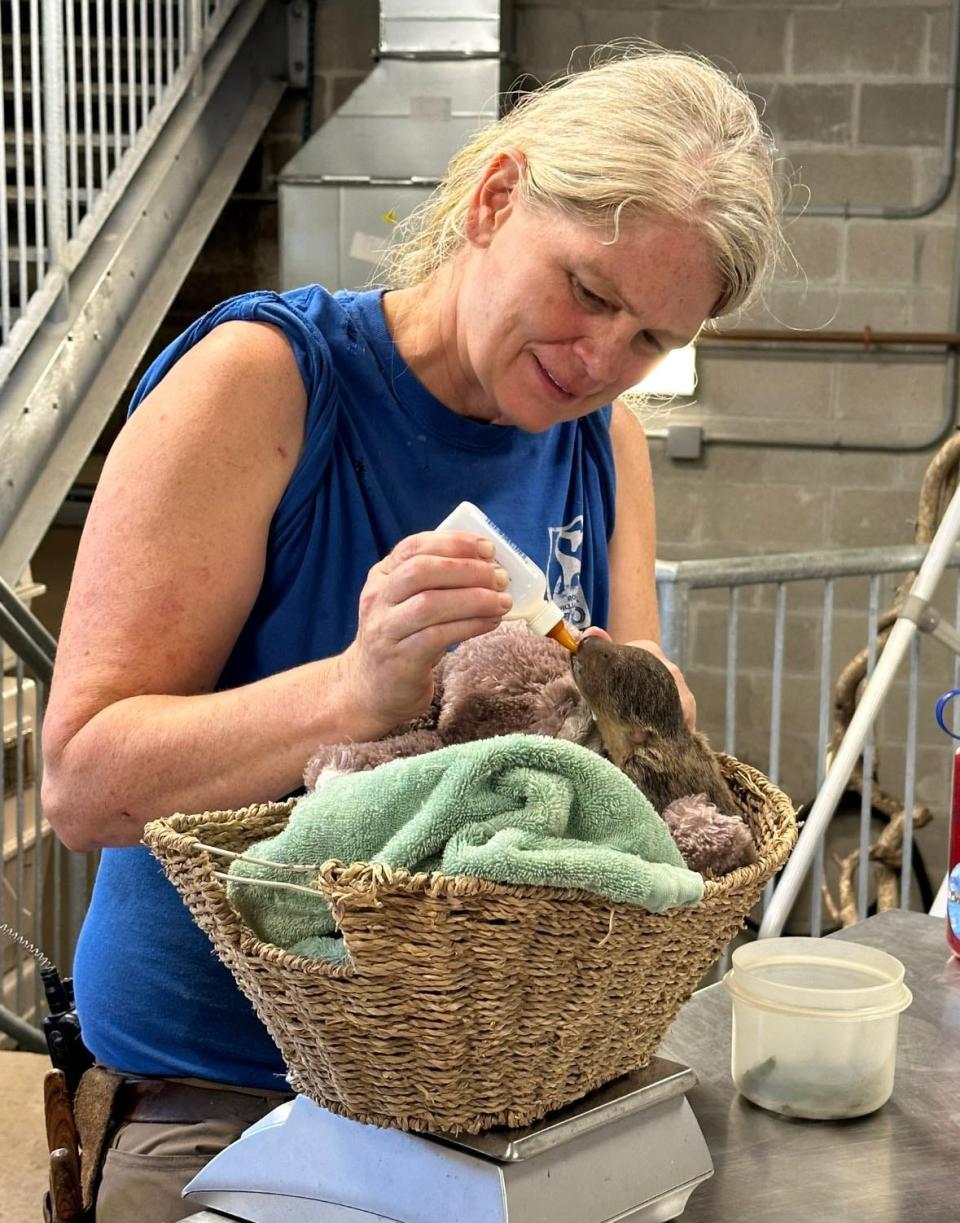Roger Williams Park Zoo's new baby is cute – but he won't win any races
PROVIDENCE – What is the world's slowest mammal, sleeps 15 to 20 hours a day and is so sedentary that algae grows on its fur?
If you guessed the sloth, you're right.
Roger Williams Park Zoo announced the birth of a Linne's two-toed sloth Wednesday in a Facebook post that included photographs of the newbie being bottle fed by a zoo worker.
"We are elated to announce the birth of a baby sloth! Born to mom Fiona and dad Westley, this adorable newborn is resting comfortably and keeping close to mom," the zoo says in the announcement.
The baby boy, who is not yet named, was born July 27, weighing just under 1.5 pounds, according to Vicki Scharfberg, the zoo's director of marketing and public relations.
"This birth is significant for our Zoo and the sloth population worldwide as we are a part of the Linne’s Two-Toed Sloth Species Survival Plan, which focuses on breeding to ensure the survival of a species," the zoo says.

The sloths are not listed as endangered, according to the Denver Zoo, "but their numbers are declining mainly due to loss of their rainforest habitat. They are heavily hunted in Brazil for their meat. Their pelt is used for saddle covering and the curved claws are used to make jewelry."
The baby sloth will sleep 15 to 20 hours a day
A baby that sleeps 15 to 20 hours a day might seem like a dream child for a new parent, but the Providence zoo notes that "baby sloths will cling to their moms for nearly the first full year of their lives."
After that, zoogoers shouldn't expect all the much activity. "On average, sloths only travel 41 yards per day — less than half the length of a football field," the Providence zoo says on is website. "Why do they move so slowly? It’s to conserve energy. To save energy they move at a relaxing pace and don’t wander too far from home."
More from the zoo: High-flying escape artist macaws now the stars of the show at Roger Williams Park Zoo
On the other hand, they're three times stronger than the average human, the zoo claims.
In the wild, two-toed sloths live high in the treetops of Central and South America. "They sleep hanging in the trees with their arms and legs close together and their head tucked between their limbs that makes them look like part of the tree," the Denver zoo says. "They mate in the treetops and give birth hanging upside down in the trees."
Roger Williams Park Zoo says, "Our incredible staff of zookeepers and veterinarians are keeping a watchful eye over mom and baby to ensure their well-being as they bond behind-the-scenes. With the help of mom’s love, daily monitoring, and some supplemental feeding from our keepers, this little one continues to grow and gain strength!"
This article originally appeared on The Providence Journal: Roger Williams Park Zoo welcomes new baby sloth

